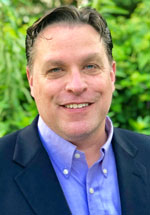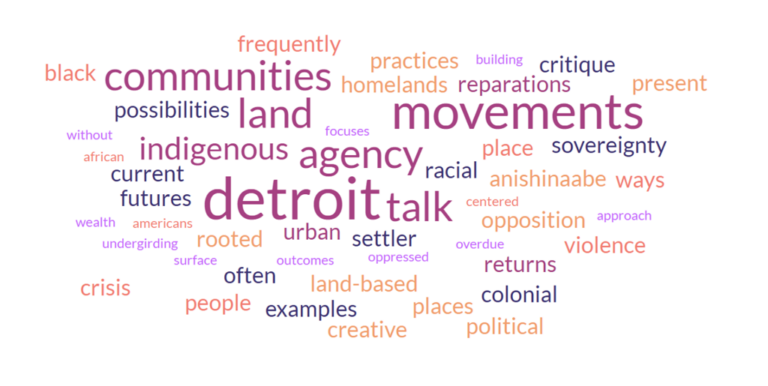In Kansas, an Early Warning for Higher Education and Geography
 Late last month, a bellwether event took place in Kansas, threatening higher education’s ability to support post-COVID recovery. Citing the extreme budget constraints caused by the pandemic, the nine-member Kansas Board of Regents unanimously approved a new policy giving public institutions the power to remove faculty, including those with tenure, through 2022. The new policy sidesteps one already in place that addresses financial emergencies while preserving transparency and faculty participation in termination decisions.
Late last month, a bellwether event took place in Kansas, threatening higher education’s ability to support post-COVID recovery. Citing the extreme budget constraints caused by the pandemic, the nine-member Kansas Board of Regents unanimously approved a new policy giving public institutions the power to remove faculty, including those with tenure, through 2022. The new policy sidesteps one already in place that addresses financial emergencies while preserving transparency and faculty participation in termination decisions.
Four of Kansas’s six public universities were quick to say they will not use the new policy, at least for now. In contrast, the University of Kansas’s Chancellor Douglas A. Girod stated that the University is considering the policy as it reckons with a budget shortfall of more than $74 million. Girod goes on to suggest this shortfall will require the university to “eliminate programs and departments, reduce services, and implement furloughs and layoffs.” We only have to review the recent trends of geography departments to recognize this as a dire situation — all at a time when the value of geospatial awareness and research is more critical than ever.
The AAG submitted a letter to Chancellor Girod, asking him to join with other leaders of the state’s universities in rejecting this new policy and instead continue to involve academia’s most precious resource: its people. In our letter, we described why we–along with more than 50 national organizations and more than 6,000 individuals–are signing on to the KU Faculty’s Solidarity Letter:
“We see the Kansas Board of Regents policy decision as a troubling signal, and a potential threat for universities across the country as ongoing budget austerity measures and the crisis of COVID-19 converge. These circumstances leave vulnerable academic tenure as a whole, but especially the tenure of geography departments and professors. We will closely monitor this trend, and we call on our members to alert us to similar issues emerging on their campuses.”
Chancellor Girod responded quickly to our letter, expressing appreciation for our feedback and promising to include our concerns in their decision-making process while still citing the need to address the university’s budget challenges. Soon after, as reported by KU faculty member Ani Kokobobo in The Chronicle of Higher Education, Provost Barbara A. Bichelmeyer indicated that “the university hoped not to use the policy but needed to keep it on the table just in case,” and noted that further faculty input would be sought. But, asks Kokobobo, “can anyone feel safe speaking up on campus anymore, when we’re expected to outline the parameters of our own firings and those of our colleagues?”
 Unfortunately, the circumstances surrounding this issue are neither unique to Kansas nor are they only about COVID-19. For most states, public funding for higher education never recovered after the 2008 recession. Without the recurring financial challenges borne from stagnating state support, perhaps more institutions would have reserves sufficient to handle the additional strains of COVID-19. If anything, the trying times call for robust and consistent investment in high-quality teaching and research, as well as a shift back towards support for the academic freedom that tenure provides. The Kansas action runs dangerously counter to those ideals and poses a particular threat to the future of geography departments’ wide-ranging instruction and research on the impacts of COVID-19.
Unfortunately, the circumstances surrounding this issue are neither unique to Kansas nor are they only about COVID-19. For most states, public funding for higher education never recovered after the 2008 recession. Without the recurring financial challenges borne from stagnating state support, perhaps more institutions would have reserves sufficient to handle the additional strains of COVID-19. If anything, the trying times call for robust and consistent investment in high-quality teaching and research, as well as a shift back towards support for the academic freedom that tenure provides. The Kansas action runs dangerously counter to those ideals and poses a particular threat to the future of geography departments’ wide-ranging instruction and research on the impacts of COVID-19.
While COVID-19 may be the crisis of our time, the problems faced by geography departments are not new. At AAG, we have seen troubling trends in austerity for geography departments and faculty for over a decade. Our $900,000 COVID-19 Rapid Response programs help support the discipline through the pandemic and strengthen departments ahead of budget stresses. An ongoing series of workshops and resources give department chairs more tools to showcase geography at their institutions. Furthermore, we continue to support the discipline by pushing for significant funding increases for the National Science Foundation and related agencies, opening up more grant opportunities to ease the funding burden on graduate students and researchers.
But we can do more to strengthen our understanding of the challenges faced by geography departments and geographers. Working with our Healthy Departments Committee, our Data-Driven Strategic Insights group on the AAG staff is preparing to support a significant data collection this spring. If successful, this data collection can help us gain a bird’s-eye view of the network of geography programs in the U.S. and inform a strategy to strengthen it. With the prospect of deep cuts throughout higher education, it will be important for programs not to spread themselves too thin and instead focus on a specialty that reflects the needs of local job markets or builds inter-university geography programs. Retaining tenure-track positions will be critical to the sustainability of programs and long-term academic excellence. We urge geography programs in our network to facilitate the AAG’s work by providing timely, accurate information about each program’s strengths and weaknesses.
Although universities and colleges must face budget realities and make difficult decisions, we can leverage our collective experiences to ensure departments will not only survive but thrive amidst the profound changes that COVID-19 and other forces bring to post-secondary education and research. Now, more than ever, AAG will commit to supporting the stability and continuity of geographers and geography departments, acknowledging that every penny invested in their work repays itself with tangible benefits for public health, education, communities, and so much more.
What You Can Do Now
- Encourage your institution to sign the KU Faculty and Staff Solidarity Statement
- Connect with your Regional Division to stay abreast of developments in your location
- Email us to send your news if you hear of a crisis like this or need support
—Gary Langham
AAG Executive Director
DOI: 10.14433/2017.0085
Please note: The ideas expressed by Executive Director Gary Langham are not necessarily the views of the AAG as a whole. Please feel free to email him at glangham [at] aag [dot] org.


